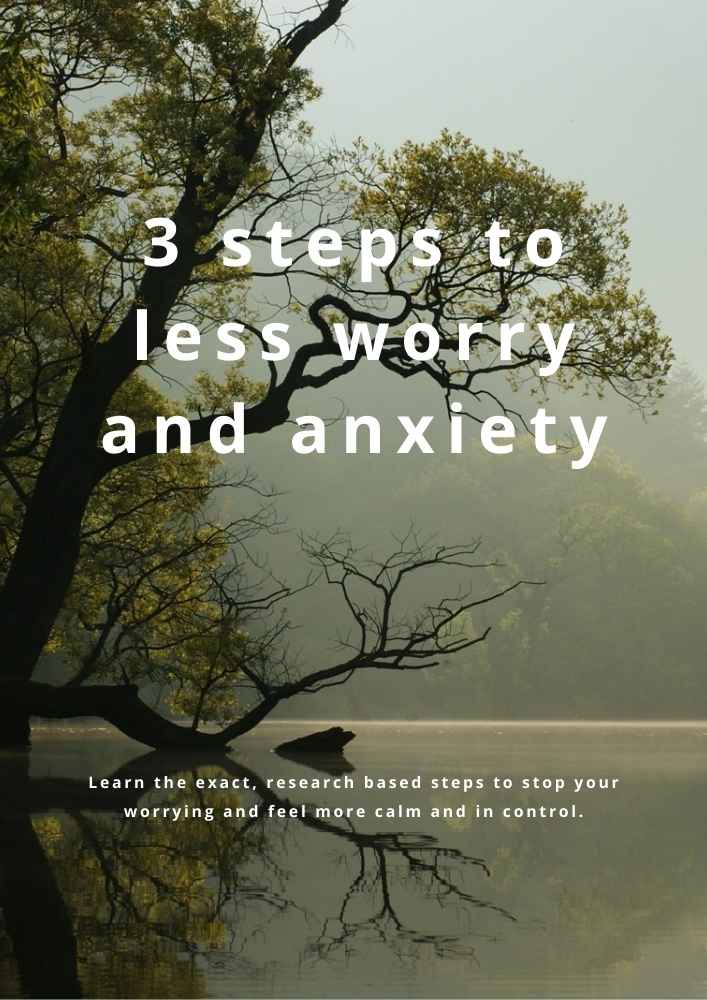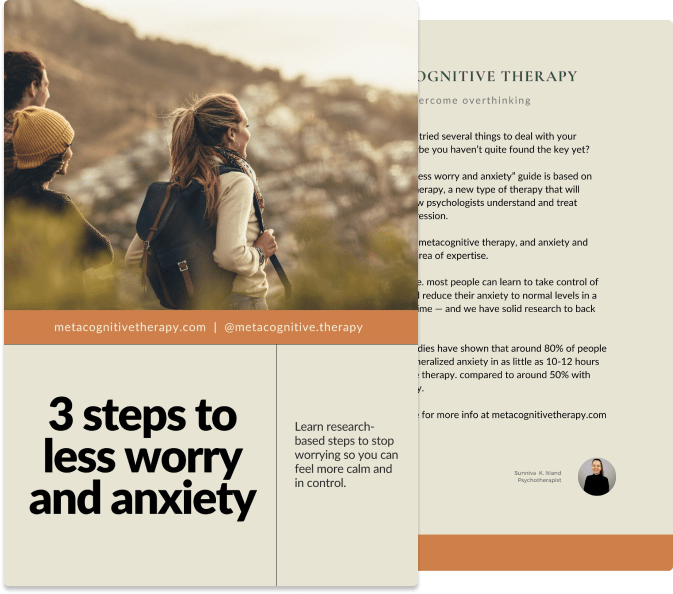Are you excessively worrying? Why it happens and how to stop it

Download our best tips on reducing anxiety and worrying
Learn three powerful metacognitive therapy steps to stop the worry cycle, reduce anxiety, and feel calmer in everyday life.
.jpeg)
.jpeg)
Do you overthink every concern that pops into your head? While it might feel impossible to stop, you're actually more in control of your worrying than you think. Read on to learn how you can start letting your worries take up less space.
What we believe about our thoughts informs how we deal with them. Stressful thoughts are not necessarily important thoughts.
You might think that negative thoughts and feelings must always have a cause. That when you feel anxious, there is an important reason for it, and you need to figure it out in order to feel better.
But the restlessness and anxiety you feel aren't necessarily there for a specific or important reason. And if they are, they could simply be a byproduct of worrying and overthinking a situation.
What if your negative thoughts are causing panic and anxiety because you believe they're significant, and not because they're inherently important?
Anxiety and restlessness are normal feelings that pass on their own — they're not a cause for concern
It's important to realize that everyone feels anxious and restless from time to time. But one thing almost everyone who suffers from anxiety has in common is the excessive amount of attention they pay to unpleasant feelings. Why do I have this thought? What does it mean? Should I explore every possible consequence this could have on my life?
It's totally understandable that some people try to prepare by exploring. You might think, 'I'm mentally preparing myself for all eventualities.'
But when you do this, you're making yourself more anxious.
If you leave worry and anxiety alone it will pass, just like any other emotion you've ever had.
But if you consistently start worrying every time you feel uneasy or anxious, the feelings will last longer and feel stronger.

Download our best tips on reducing anxiety and worrying
Learn three powerful metacognitive therapy steps to stop the worry cycle, reduce anxiety, and feel calmer in everyday life.
Worrying keeps your anxious feelings going
Have you ever had a dream that felt so real it surprised you? Humans have vivid imaginations. We can choose to play out scenarios in our heads at will, and we can experience the resulting emotions as if this visualization was the real thing. While this can be a useful ability in our everyday lives, playing out negative scenarios in your head repeatedly is like having front row seats to a horror movie that's written and directed by you.
Even though most worries only happen inside your head, your thoughts affect how you experience the world. When you worry a lot, you will feel like you live in a dangerous and unpredictable world — even if you have a pretty calm life. And when you experience the world as dangerous, it creates fertile ground for more unrest and more worries, creating a vicious cycle.
Most worries only happen in your head
How many worries have you had that never materialized? They felt scary and important in the moment, but did they actually happen? Most probably didn't. (And the ones that did happen, you were most likely able to deal with). We can waste an enormous amount of time worrying about (and preparing for) things that will never happen, and in doing so, we create unnecessary work, stress, and drama.
Some people are able to break the cycle simply by recognizing their negative thought processes and choosing to stop engaging in them. But many will need professional help to recognize and eventually break these negative cycles. If you could use extra support, try booking a session with one of our metacognitive-certified therapists today.
If you've tried other types of therapy but didn't feel that it helped, take this quiz to find out if MCT can help you.



